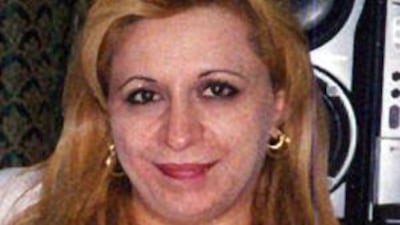Ani was 20 and working on a market stall in an area of Yerevan, the Armenian capital, nicknamed "Bangladesh" when she was made an offer she couldn't refuse - the chance to work as a nanny in Dubai for a tempting tax-free wage.
But Ani, like many women before her, fell victim to a human-trafficking ring run by three Armenian sisters. When she arrived in Dubai, her passport was taken away and she was sent to live with "Madame Anoush" in her brothel in Deira, where she was forced into prostitution.
Anoush Martirosyan, 40, the leader of the operation, was sentenced to 13 years in prison by a Yerevan court on April 20 after the Emirati and Armenian authorities worked together to build a case against her.
The evidence presented at her trial painted a grim picture. Ani was told she would have to work as a prostitute to pay back the money spent bringing her to the country. Any protests were met with beatings. "There were days when she'd beat us and not feed us if we didn't work," Ani, now 26, said in court, according to the Armenian online newspaper Hetq.
"She would line us all up in a row and grab her shoe ... It didn't matter whether I worked well or poorly, she'd always hit me," Ani said. "One day I complained, saying that after all the work I was doing she wasn't giving me any money. Upon hearing these words, she rushed me into a taxi, took me back to the house, and proceeded to beat me with an iron bar."
Ani said she escaped several times, but recalled how she was brought back by "Ponytail Ali", a henchman the prostitution ring used to teach a lesson to those who caused trouble. Milena, 35, another victim who gave evidence, said Martirosyan would instil fear in her workers by calling on Ponytail Ali. "There were about four to six girls with Anoush," Milena said. "Whenever a new girl was brought to the stable, they'd call Ponytail Ali to make a visit so that they'd recognise his face.
"If anyone was making problems they'd phone Ponytail Ali. He'd go find the girl, take her out to the desert, have his way with her, beat her and then take her to the boss."
Milena said she finally managed to get her passport back, but was still trapped. "I had no money. It wasn't only a question of a visa or plane ticket. I also had to pay a fine because I had stayed in Dubai without any visa for about one year," Hetq quoted her as telling the court.
She said that in desperation, she hatched a plan to be deported. "I went to a hotel where drinking wasn't allowed and started downing some beers. I lined up the empty bottles on the window-shelf. Then I rang up the police, who came and jailed me for two months. On May 4, 2008, I was deported."
Sara Suhail, executive director of the Ewaa Shelter for human trafficking victims in Abu Dhabi, said women brought here against their will should never feel helpless.
"Maybe sometimes victims aren't aware of the efforts the country is dealing with this problem and don't know that there are now procedures and laws in place," Ms Suhail said. She said victims also might be afraid of being charged with prostitution if they go to the police for help. But, she said, a special police task force had been set up specifically to recognise human trafficking crimes and help the victims.
Martirosyan, who had been convicted in 2004 in Armenia for organising prostitution, admitted housing the girls, but denied human trafficking. She said they were willing to move to Dubai and work as prostitutes.

